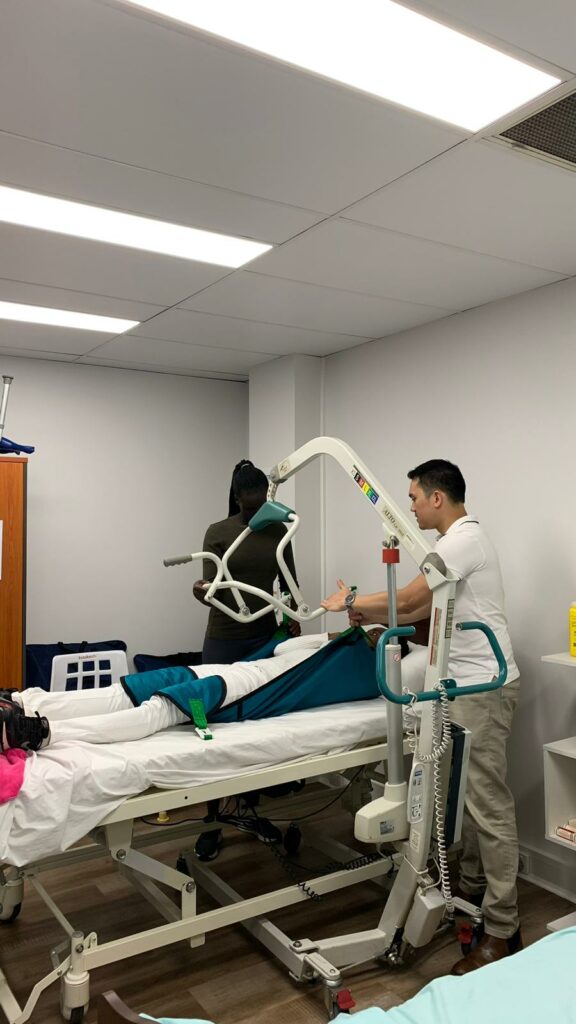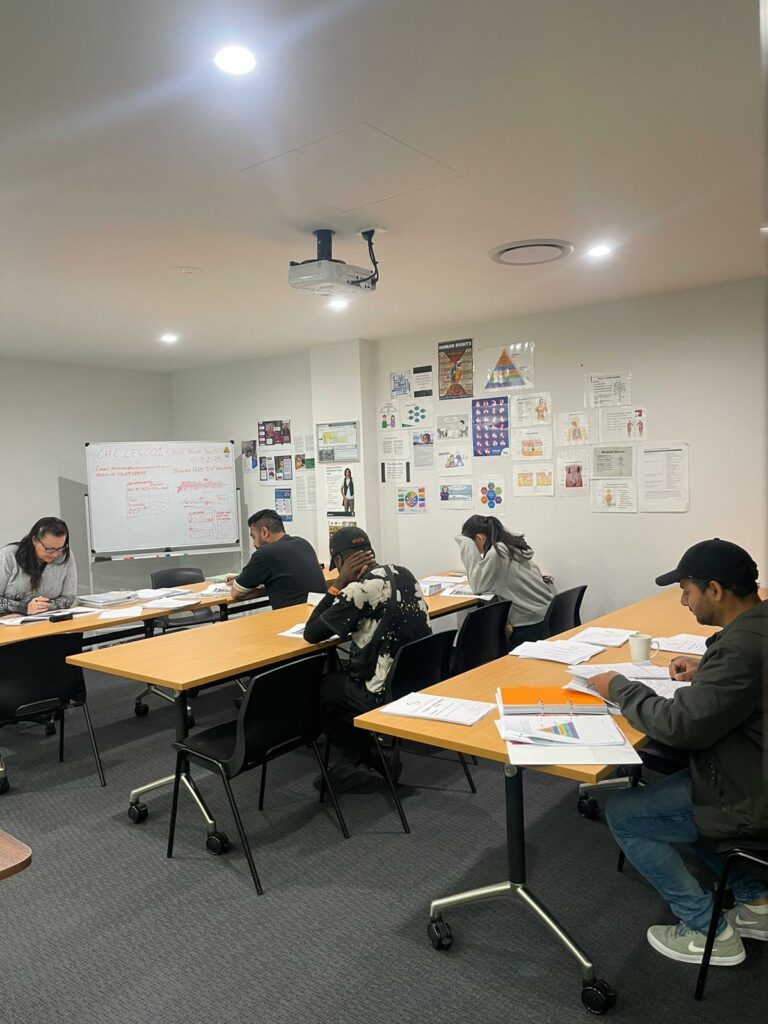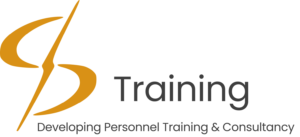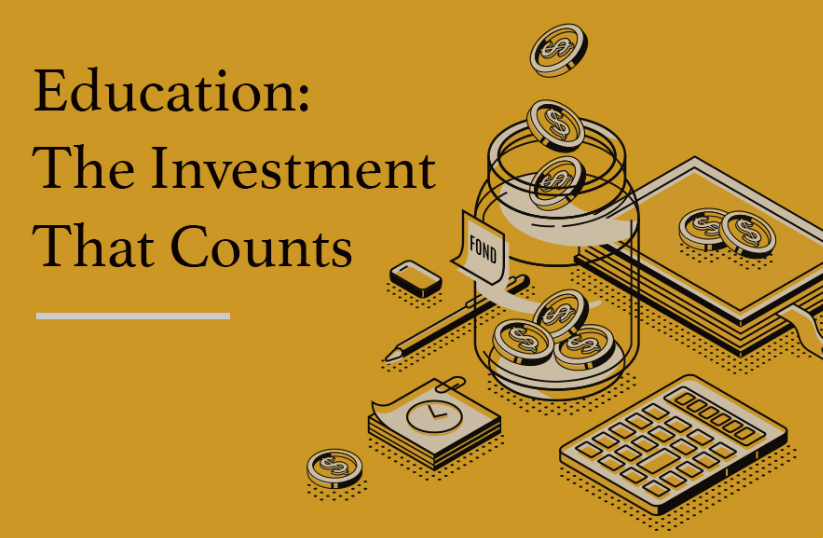Investing in Education: Connecting Skills Training to Industry Needs in Australia
In the ever-evolving global landscape, where technological advancements and economic shifts shape nations’ trajectory, education, and skills training has never been more pivotal. This is particularly evident in a country like Australia, where the fusion of knowledge, innovation, and industry relevance holds the key to fostering a thriving and resilient economy. As we delve into the realm of investing in education, let’s explore the critical significance of skills training aligned with industry needs within the Australian context.

Importance of Education and Skills Training: Nurturing Human Capital
Education is the cornerstone upon which societies build their future. It’s the vessel through which knowledge, values, and skills are transmitted across generations, creating a knowledgeable and competent citizenry. Skills training in Australia, a vital component of education, equips individuals with the practical abilities necessary to thrive in the workforce.
Education plays a dual role in Australia, a country known for its rich cultural diversity and innovative spirit. Here, education not only empowers individuals to realize their potential but also fuels the engines of economic growth. The workforce of today and tomorrow requires theoretical knowledge and a repertoire of skills that enable seamless integration into an ever-changing job market. Whether it’s technical prowess, problem-solving acumen, or effective communication skills, education, and skills training provide the scaffolding upon which these attributes are built.
Alignment of Skills Training with Industry Needs in Australia: The Nexus of Education and Employment
The symbiotic relationship between education and industry needs is the foundation of a dynamic and prosperous economy. The challenge lies in bridging the gap between academia and the real world. In Australia, this alignment is crucial due to the country’s reliance on industries such as mining, agriculture, technology, and services. The success of these industries hinges on having a workforce that possesses theoretical knowledge and practical skills tailored to their unique demands.
By aligning skills training with industry needs, Australia ensures that its workforce remains adaptable and responsive to the changing demands of the global economy. It’s a strategic approach that enhances the employability of graduates, reduces skills shortages, and fosters innovation. When education institutions collaborate closely with industries, curricula can be fine-tuned to incorporate the latest developments, emerging technologies, and best practices, ensuring that graduates are job-ready and equipped to contribute effectively from day one.
The Current Landscape of Education and Skills Training in Australia
Australia’s commitment to education and skills training is evident in its well-structured and comprehensive framework that nurtures a skilled workforce capable of meeting the demands of a rapidly evolving global landscape. From its robust education system to its focus on vocational training and strong industry collaboration, Australia’s approach to education and skills training sets a shining example.
Overview of Education System: A Multifaceted Approach System of Skilled Education Australia is characterized by its multifaceted structure, catering to diverse learners and aspirations. The system encompasses various levels, including:
- Early Childhood Education: Providing a strong foundation for learning, Australia offers early childhood education and care programs that focus on the holistic development of young learners.




- Primary and Secondary Education: Compulsory education covers primary and secondary levels, emphasizing core subjects and essential skills while encouraging critical thinking and creativity.
- Higher Education: Australia boasts globally recognized universities and institutions offering a wide array of academic disciplines, from arts and sciences to technology and business.
- Vocational Education and Training (VET): VET programs equip learners with practical skills and knowledge specific to various industries, preparing them for direct entry into the workforce.
- Adult and Community Education: These programs support lifelong learning, enabling individuals to upskill and adapt to changing industry needs.
- Skills Training Programs and Vocational Education: Nurturing Practical Proficiency
Vocational Education and Training (VET) is at the core of the Australian education system, designed to bridge the gap between classroom learning and practical application. VET programs offer diverse courses, including trades, healthcare, hospitality, and technology. These programs focus on hands-on learning, equipping students with the tangible skills required for direct entry into the workforce.
Australian Vocational Education and Training encompasses apprenticeships, traineeships, and short courses tailored to industry demands. Students gain real-world experience through practical placements and internships, ensuring they are job-ready upon graduation. This emphasis on practical proficiency fosters a workforce that can seamlessly transition into various sectors, contributing to economic growth and innovation.
Industry-University Collaboration: Forging Pathways to Excellence
One of Australia’s strengths lies in its robust industry-university collaboration, where academia and industry unite to ensure that education is not confined within the classroom walls. Collaborative partnerships between universities and industries lead to the development of curricula that align with the latest industry trends and technological advancements.
These partnerships extend beyond curriculum development. They often involve joint research projects, internship opportunities, and guest lectures by industry experts. This symbiotic relationship enriches the learning experience, exposing students to real-world challenges and providing a seamless transition from education to employment.
The Australian government’s active support for such collaborations further enhances their impact. Initiatives like the Industry Growth Centres, which bring together researchers, industry leaders, and government agencies, drive innovation and ensure that education remains a dynamic force in the ever-evolving job market.
Short Courses: Your Fast Track to Industry Readiness
In a world of constant evolution, staying ahead in your career often requires a blend of dedication, skill enhancement, and adaptability. That’s where DP Training’s array of focused short courses comes in. Designed to equip you with the precise skills demanded by today’s industries, these courses are your express ticket to industry readiness. Get ready to transform your career trajectory and shine in your professional journey.
- Epilepsy Workshop: Master the essentials of handling epilepsy situations and the administration of medication with confidence and precision.
- PEG Feeding Workshop: Dive into the intricacies of Percutaneous Endoscopic Gastrostomy PEG feeding, gaining vital knowledge for healthcare professionals.
- Manual Handling Short Course: Learn safe manual handling techniques, ensuring your workplace remains a hub of safety and well-being.
- Documentation Short Course: Master the art of effective documentation, a crucial skill across various industries for clear communication and record-keeping.
- BSL Awareness Short Course: Open doors to inclusivity with British Sign Language awareness, a vital asset in today’s diverse workplace.
- Business Planning Essentials: Develop the blueprint for success with comprehensive business planning techniques and strategies.
- Promote Products & Services: Unveil the secrets to successful product and service promotion, driving growth and customer engagement.
- Improving Time Management: Harness time as your ally with techniques to enhance productivity, efficiency, and work-life balance.
- Essential Teamwork Skills: Elevate your teamwork dynamics with essential skills that cultivate collaboration and synergy.
- Team Leader Strategies: For aspiring leaders, learn to guide and inspire your team towards excellence with effective leadership strategies.
- How to Strengthen & Grow Your Small Business: Discover the key elements to fuel small business growth, from marketing to financial management.
- How to Manage Risk in Small Business: Navigate the challenges of entrepreneurship by mastering risk management for small businesses.
- Improving Customer Service Skills: Elevate customer satisfaction by honing your customer service skills, a cornerstone of business success.
- How to Communicate Effectively as a Workplace Leader: Unlock the power of effective communication as a leader, fostering a thriving and engaged team.
Embrace the future with confidence and competence. We offer accredited short courses online that are meticulously designed to align with industry demands, propelling you toward success. Whether you’re a seasoned professional or just starting your journey, these courses offer the tools to excel, leaving a trail of accomplishments in your wake. Elevate your skills, transform your career, and seize your industry-ready future today!
The Significance of Connecting Skills Training to Industry Needs
In the intricate web of modern society, the alignment between skills training and industry needs stands as a critical pillar that upholds economic growth, innovation, and individual prosperity. Australia, recognizing the profound significance of this connection, has embarked on a journey to bridge the gap between education and real-world demands. Let’s delve into the profound significance of this alignment.
- Bridging the Skills Gap: A Pathway to Relevance
The chasm between academic knowledge and practical application, often referred to as the skills gap, is a global challenge that societies grapple with. By connecting skills training to industry needs, this gap is bridged. Australia’s commitment to this alignment ensures that graduates emerge equipped with theoretical understanding and tangible skills that resonate with employers. As industries evolve and adopt new technologies, the alignment between education and workforce needs becomes even more crucial to ensure graduates are equipped to navigate the contemporary professional landscape.
- Enhancing Employability: A Gateway to Meaningful Careers
Education and skills training should be synonymous with employability. By tailoring training programs to industry demands, Australia transforms education into a conduit for meaningful careers. Graduates emerge from their educational journey with the degree and competencies that employers seek. This enhances their chances of securing relevant and fulfilling employment swiftly, contributing to their personal growth and bolstering the nation’s workforce.
The connection between skills training and employability extends beyond initial job placement. It instills in individuals a capacity for adaptability, enabling them to navigate career shifts and industry changes. As industries transform due to technological advancements, those with relevant skills find themselves at the forefront of new opportunities.
- Fostering Innovation and Economic Growth: Seeds of Prosperity
Innovation is the cornerstone of progress, and a workforce armed with industry-relevant skills is the catalyst that fuels this innovation. By aligning skills training with industry needs, Australia fosters an environment where individuals possess the capacity to drive and adapt to technological advancements. When graduates possess the skills that industries require, they become the engines of economic growth. They are equipped to develop groundbreaking solutions, drive entrepreneurship, and contribute to the creation of new markets.
This alignment also establishes a virtuous cycle. As industries witness an influx of skilled and innovative professionals, they are better positioned to develop cutting-edge products and services, which, in turn, stimulate economic growth. The resultant economic vibrancy creates a fertile ground for further innovation and opportunity, completing a circle of prosperity.
Invest in Education: Elevate Your Skills with DP Training!
Ready to take your skills to the next level? Discover our range of accredited short courses online designed to enhance your abilities and make you career-ready. DP Training has your back whether you’re a student or a professional aiming for growth.
Unlock a world of opportunities and set yourself up for success. Don’t miss out – take the first step toward your brighter future today! Explore our courses and embark on your journey to excellence.
Your future starts with your choices. Choose DP Training, and let’s shape success together!
Frequently Asked Questions
1. What does the education and training industry do?



The industry equips learners with the knowledge, skills, and competencies needed to excel in their chosen fields and contribute effectively to society and the economy.
2. What skills are in high demand in Australia?
In Australia, several skills are in high demand due to shifts in industries and technological advancements. Some of these in-demand skills include:
- Digital Literacy and Tech Proficiency: With the rapid integration of technology across sectors, skills in data analysis, coding, and digital platforms are highly sought after.
- Healthcare and Aged Care Professions: Australia’s aging population has driven demand for healthcare professionals, including nurses, doctors, and aged care workers.
- Trades and Skilled Labor: Skilled trades such as electricians, plumbers, and construction workers remain in demand to support infrastructure and development projects.
3. How can I stand out in job interviews and secure the desired job?
To stand out in job interviews, thoroughly research the company and industry, tailor your responses to showcase how your skills and experience align with the job requirements, and demonstrate genuine enthusiasm and passion for the role and the organisation. Additionally, prepare thoughtful questions to ask the interviewer to show your interest and engagement in the position.





